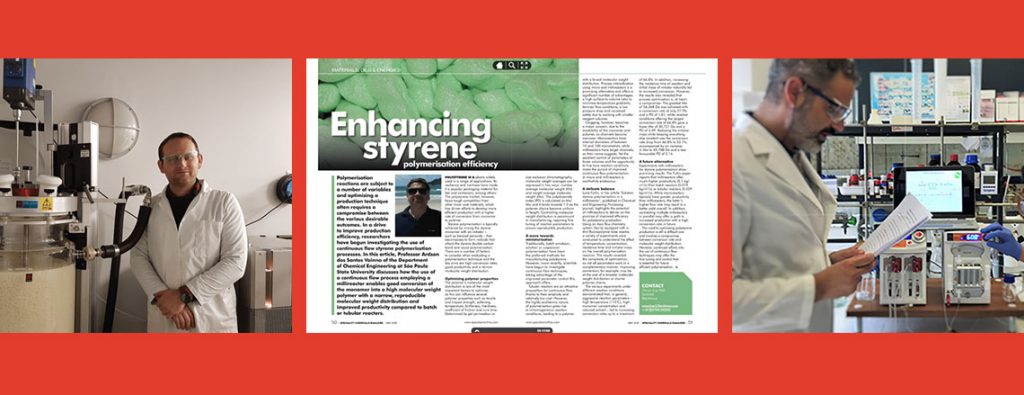There has been a considerable growth in recent years in the use of biocatalysis protocols as a means of developing more straightforward routes to the organic synthesis of complex molecules. Historically, these reactions have been performed by traditional batch reactions, but continuous flow technology is now attracting a great deal of attention.
Today, chemists are increasingly turning to continuous flow to overcome the challenges of traditional batch synthesis, looking to streamline processes and introduce new efficiencies. Researchers at the Institute of Chemistry of the Federal University of Rio de Janeiro are taking advantage of the modular Asia flow chemistry system to develop biocatalyzed continuous flow reactions.
Professor Dr. Rodrigo de Souza, Associate Professor in Organic Chemistry, explained:
“Our department is dedicated to teaching and research into organic chemistry and wanted a continuous flow system to perform biocatalytic reactions. We needed a flow chemistry system that would enable us to load catalysts onto a packed bed easily, and the Asia system has proved ideal.
We purchased the Asia system a year ago and found it easy to implement in our laboratory. It is a very user-friendly system, and the wide range of flow rates offered by the Asia Pump is a big advantage. We also have the capability to load the solid phase column reactors with our own catalysts, which is another great benefit.
The system is running seven days a week and is so popular that people are queuing up to use it. The Asia system helped us to become the first group at the University – and in Brazil – to develop biocatalyzed continuous flow reactions, and we now plan to buy another similar system to help meet the needs of our laboratory.”
Interested in how Asia flow chemistry systems could help you access new and exciting chemistry? Speak to a member of the Chemistry team today.

